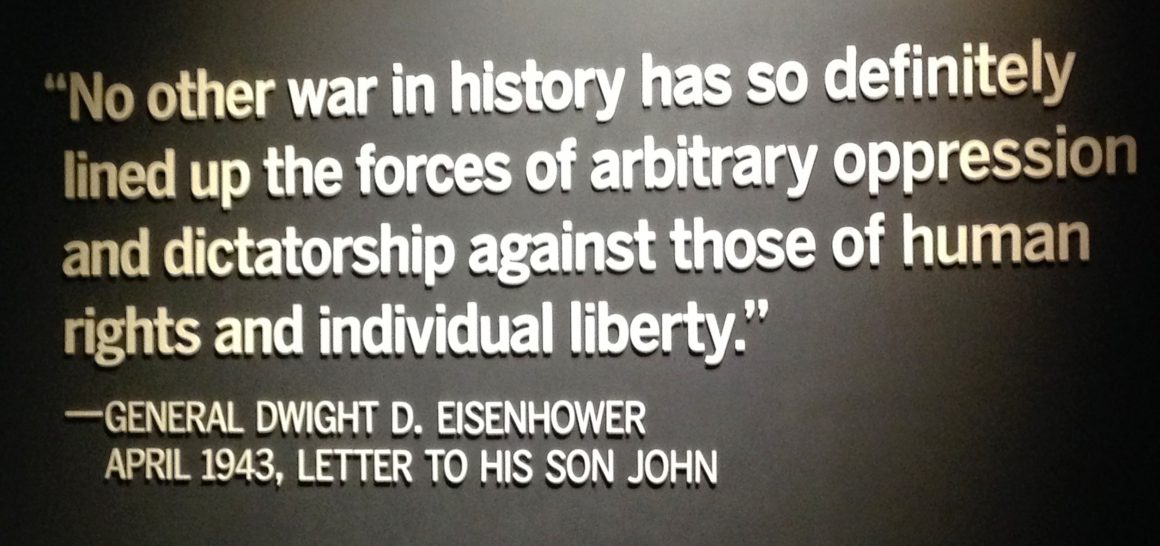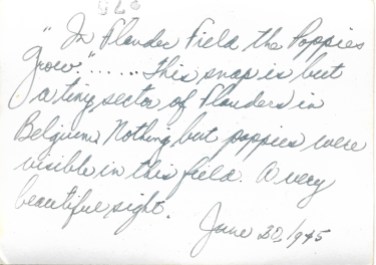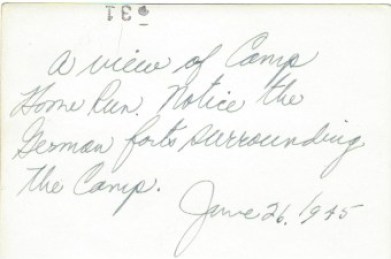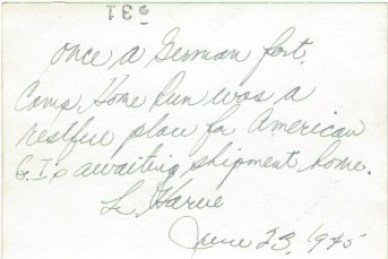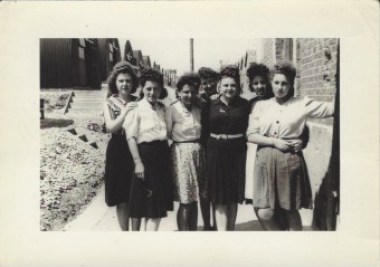Once a German fort, Camp Home Run was a restful place for American GI’s awaiting shipment home.
Bernard McKenzie, Le Havre, France, June 23, 1945
In his last stop in Europe after being freed from a German POW camp, my dad and many others spent about a week at Camp Home Run in Le Havre, France.
Underground tunnel barracks that we were housed in during our 5 days at Home Run.
Bernard McKenzie, Le Havre, France, June 23, 1945
A flag raising ceremony at Camp Home Run.
Bernard McKenzie, Le Havre, France, June 24, 1945
Here we could write letters, play cards, checkers, ping pong, read, etc.
Bernard McKenzie, Le Havre, France, June 24, 1945
At Camp Home Run–near Le Havre, France–we had all the service one would want. French girls served us in a cafeteria manner.
Bernard McKenzie, Le Havre, France, June 24, 1945
Service deluxe was to be had at Camp Home Run. These are a few French girls who dished out food in the kitchen.
Bernard McKenzie, Le Havre, France, June 23, 1945
We had stayed at “Home Run” for 5 days. We were sweating out boarding our ship. Here we are leaving “Home Run”–boarding trucks and en route to our boat.
Bernard McKenzie, Le Havre, France, June 26, 1945
By just looking at the calendar, my dad’s time in Europe was only a little more than six months. But the events of the short time he was there cover more than one full chapter in a history textbook. He landed in France and moved with his infantry division north through France into Belgium, to help protect the Allies eastern front in the Ardennes. Little did he know that just after Christmas, he and thousands of other Americans would be captured in one of Germany’s largest, final offenses, in what would become known as the Battle of the Bulge. After nearly six months of captivity, my dad and others like him must have so welcomed settling down to sleep in a place named Home Run before getting on a ship for the long journey home.

